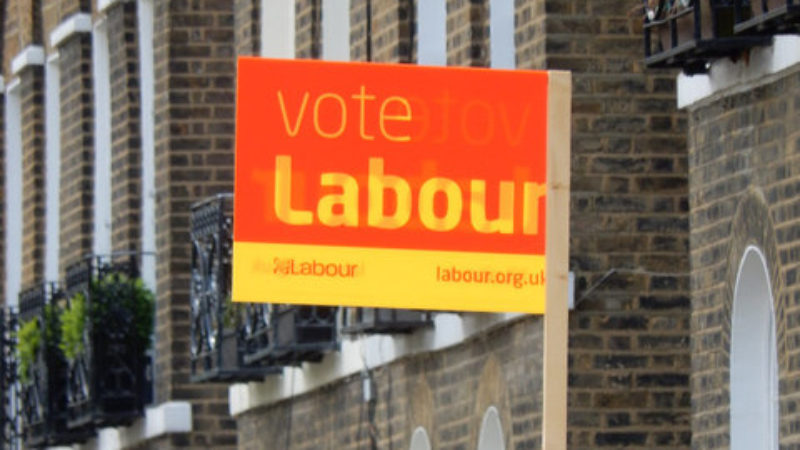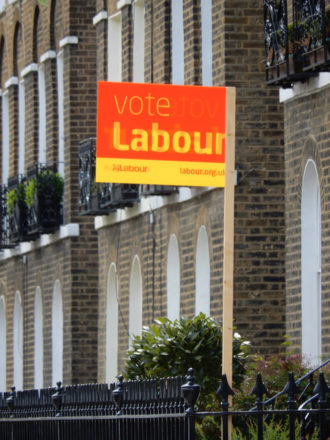

I was disappointed to see Owen Jones’ article in the Guardian last week which floated the idea of a split in the Labour Party into rival leftwing and centre left parties in the context of a change in the voting system to proportional representation.
I have some policy disagreements with Owen (probably fewer than people would expect) but I think we should be in the same party, and that party should be the Labour Party.
There are many good arguments to be made for electoral reform: increased voter choice, governments requiring majority electoral support, seats in parliament more accurately reflecting votes cast, better regional representation of parties as “electoral deserts” such as Labour’s current lack of Southern MPs are addressed.
Making it possible for Labour to split in two isn’t one of those good arguments.
Labour’s great strength has been the broad coalition that founded it and which it has encompassed ever since.
From its foundation Labour was not just an ideologically pure socialist party. It included democratic socialists who wanted to replace capitalism through democratic means, social democrats who stopped short of wanting to change the economic system but wanted the state to ameliorate the impact of markets to create a fairer and more equal society, Fabian gradualist social reformers, co-operators and most importantly trade unionists who often were not socialists at all but wanted a strong voice for working people and the labour movement in Parliament and had found that their experiment of trying to do this through the Liberal Party was not delivering satisfactory results. This combination gave Labour a broader base of support than narrower more ideological European socialist parties had.
That breadth of coalition has required everyone in the Labour Party to make compromises. We all get to be in a big party that we mostly agree with rather than a small one that we totally agree with.
That diversity has been a source of strength as well as internal friction. Labour’s prime ministers have been able to call on a wide array of talent because of the wide spectrum of views in the party. Would we have wanted a 1945 government that had Bevan in it creating the NHS, but not Bevin creating NATO? Would we have wanted a 1966 Labour government that had Castle in it introducing Equal Pay but not Jenkins and his liberal reforms to laws on abortion, homosexuality and capital punishment? Would we have wanted a 1997 government that had Brown in it creating the minimum wage but not Cook advocating an ethical foreign policy?
Does anyone really look at France with its history of division between the Communist and Socialist parties, Spain with the current split between Podemas and the Socialists, Germany with the left divided between the SPD, Greens and Die Linke, and think, hey, that’s what the UK needs, two or three left parties fighting each other?
Does anyone want people in Britain to have to choose, do I want to vote for or join the left party or the centre left one?
Maybe for Owen it’s easy to see which side of such a split he would fall on, I suspect for most Labour MPs and members and voters it would be less obvious where they belonged. If such a split happened which of the two parties would Ed Miliband belong in? Where would Lisa Nandy or Andy Burnham or John Healey belong? What would happen to dogged loyalists like me that would want to be in the party called Labour and carrying all of Labour’s historical baggage and the union link, even if it was the one we didn’t agree with the policies of? Would someone like Chuka Ummuna, who has been on a political journey from Compass Soft Left to Progress Blairism, be required in this brave new world to switch from one party to another along his journey?
I’ve always valued Owen’s comradeship and campaigning alongside him (we were members in the same CLP in Hackney). Does he really look at me and think “I’d rather not have to canvass alongside Luke and go to the same party meetings and social events as him, I’d really rather we were in different smaller social events, different smaller meetings with narrower, purer debates, and canvassing against each other for rival parties then negotiating a coalition afterwards”? I know he does not really think that. I definitely don’t think that about him.
Are there people who look at Labour’s split in 1981 when the SDP broke away and all the pain and anguish and horrible choices and broken friendships and wasted political energy fighting other lefties instead of the Tories and think “as long as we have proportional representation, a repeat of that would be great”?
Labour’s problem right now is we are already too narrow and getting narrower. We win when we are a broad movement, a coalition big enough to win elections under any voting system.
Regular readers will know I am not exactly reticent about expressing my differences on policy and strategy from Jeremy Corbyn. On foreign and defence policy I have fundamental differences of belief from my own party leader. But on economic and social policy I think everyone in the Labour Party, from Corbyn to Blair, shares the same values of social justice and greater equality, we just differ about the compromises that are necessary with the electorate to get a Labour Government elected and governing guided by those values. We all belong in the same party.
I think it is right that Jeremy Corbyn and Owen Jones were in the Labour Party and vigorously arguing it should move leftwards while Blair was leader, and it is right that people like me are in the Labour Party vigorously arguing it should move to the centre ground while Corbyn is leader.
Unity is not the same as uniformity. Unity is wanting to be in the same organisation, to settle your debates about who should be leader, who should be on the NEC, what should our policies be, democratically, as one big family, then however annoyed you are at the outcome to go to the same social event and the same canvassing session with the people who you may have argued with and voted against.
I can’t think of anything more intellectually constraining, more boring, more cowardly, than being in a political party where everyone follows one pure ideological line, everyone agrees on every policy and everyone blindly supports the leader. That would be being in a cult, not a democratic party.
Let’s have no more talk of splits or making Labour narrower from anyone, right or left.
We owe it to the people who founded our party and gave up so much to build it up, and to the people who depend on us for a chance of a better, fairer life, to make Labour continue to work as a broad coalition – the people’s party not a party for 20 per cent of the people.




More from LabourList
Economic stability for an uncertain world: Spring Statement 2026
‘Biggest investment programme in our history’: Welsh Labour commit to NHS revamp if successful in Senedd elections
James Frith and Sharon Hodgson promoted as government ministers